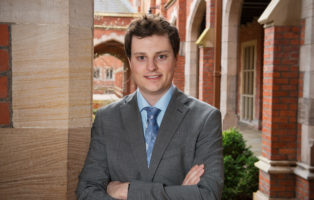About the talk
The problem is particularly prevalent in the Netherlands. In the Netherlands, the study of economic history is almost absent from the curriculum. The problem is present, to a greater or lesser extent, in both history and economics. This event will focus mainly on the case of economists. Our aim is to make academic and professional economists – and, more broadly, the interested general public – aware of the key problems associated with the absence of historical learning. And then, once the problem is acknowledged and understood, to discuss possible solutions.
Economic history is vital to the study of economics and the economy. Lessons from economic history provide invaluable insight into the big global challenges of today’s world – whether it is trade wars, financial crises, migration pressures, climate change or extreme political uncertainty.
The absence of supply of economic historians is no excuse for not engaging with a field that is clearly in demand. With a little help, every economist has the potential to be an economic historian.
Chair
Oscar Gelderblom
Panel
Chris Colvin, Sam de Muijnck, Esther-Mirjam Sent and Jarig van Sinderen
About the Participants
Chris Colvin is Senior Lecturer in Economics at Queen’s University Belfast, and was a NIAS Fellow in 2019. Together with Matthias Blum, he co-edited An Economist’s Guide to Economic History (Palgrave Macmillan, 2018), a multi-authored teaching and learning resource which demonstrates how economic history can be re-inserted into the economics curriculum.
Sam de Muijnck is a MSc Economics student at the University of Amsterdam. He is one of the founders of Rethinking Economics NL, a student-led action group advocating the reform of the university-level economics curriculum in the Netherlands. He is currently co-authoring a book which aims to provide practical advice on how universities can change the way they teach economics.
Oscar Gelderblom is Professor of Financial History and Director of Research of the Department of History and Art History at Utrecht University, and was a NIAS Fellow in 2012-2013. He has published widely on the economic and social history of the Netherlands, including recently (with Joost Jonker) on the origins of the Vereenigde Oostindische Compagnie, the world’s first corporation with limited liability.
Esther-Mirjam Sent is Professor in Economic Theory and Policy at the Radboud University Nijmegen, and a member of the upper house of the Staten-Generaal, the legislature of the Netherlands. A vocal advocate of pedagogical reform in economics, her research interests are in behavioural economics, economic policy and the history of economic thought. She is an editor of the Journal of Institutional Economics.
Jarig van Sinderen is Professor of Economic Policy at Erasmus University Rotterdam, and the Chief Economist of the Authoriteit Consument en Markt, the Netherlands’ competition authority. He has recently published on the history of cartels in the Netherlands (with Lilian Petit and Peter van Bergeijk).
Registration
You can sign up for this program for free. If you subscribe for the program we count on your presence. If you are unable to attend, please let us know via spui25@uva.nl | T: +31 (0)20 525 8142.




